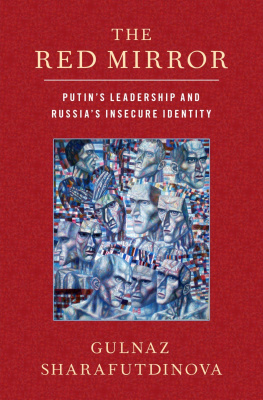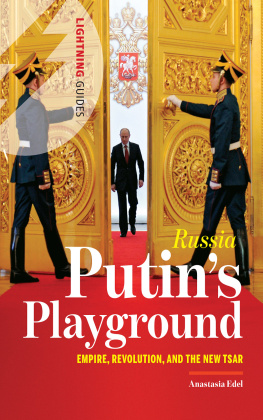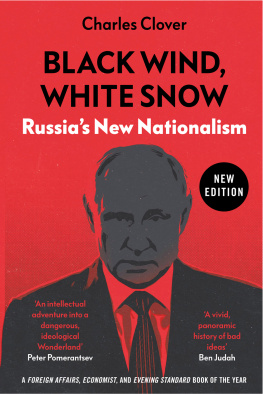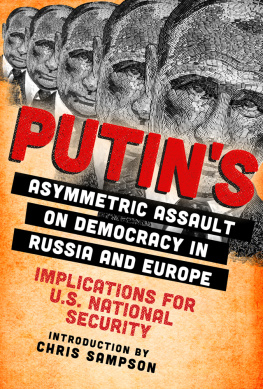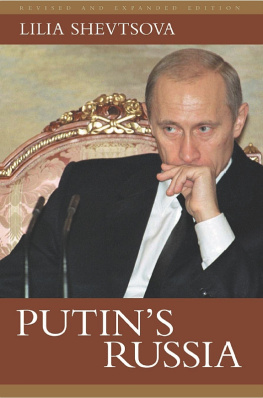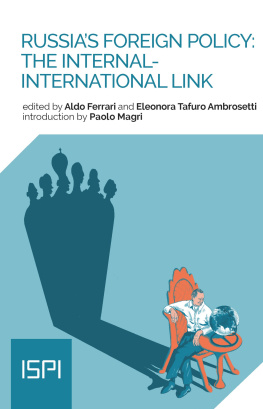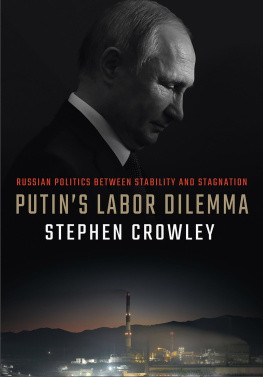The Red Mirror

Oxford University Press is a department of the University of Oxford. It furthers the Universitys objective of excellence in research, scholarship, and education by publishing worldwide. Oxford is a registered trade mark of Oxford University Press in the UK and certain other countries.
Published in the United States of America by Oxford University Press
198 Madison Avenue, New York, NY 10016, United States of America.
Oxford University Press 2020
All rights reserved. No part of this publication may be reproduced, stored in a retrieval system, or transmitted, in any form or by any means, without the prior permission in writing of Oxford University Press, or as expressly permitted by law, by license, or under terms agreed with the appropriate reproduction rights organization. Inquiries concerning reproduction outside the scope of the above should be sent to the Rights Department, Oxford University Press, at the address above.
You must not circulate this work in any other form and you must impose this same condition on any acquirer.
CIP data is on file at the Library of Congress
ISBN 9780197502945 (pbk.)
ISBN 9780197502938 (hbk.)
ISBN 9780197502969 (epub.)
I dedicate this book to my parents, Gulia Kh. Sharafutdinova (19472011) and Chulpan Z. Sharafutdinov (b. 1948).
Contents
vladimir putin is not the president of my choice. However, he is a president by virtue of the choices made by people I care about. My brother is proud of Putin. My father respects his foreign policy. My cousin voted for him, fearing instability and not seeing any viable alternatives. Educated as a political scientist, I understand the institutional mechanisms and policies in place for removing viable political alternatives and making Putin seem the only choice. Yet it is hard to deny that the degree of genuine support for Putin in Russian society goes beyond the fact that people find themselves choosing in the absence of alternatives. Soviet politics also lacked alternatives, but was far from producing pride about the Communist leaders. Putins appeal to many Russians has been real, and the analysts need to take this reality seriously, and to explore its nature and sources, its meaning and implications.
Needless to say, Putins appeal varies across the time of his outsized presidential tenure. The puzzle this book is motivated by applies best to the window of time between 2014 and 2018the moment that could be referred to as a prolonged post-Crimean syndrome, or even high Putinism. This moment was ruptured to an extent by the effects of the unpopular pension reforms announced in the summer of 2018. Still, the significance of this moment and the meanings shared in Russian society in regard to Putins leadership are likely to be more lasting.
This book is motivated primarily by a personal urge to understand the gap between how many of my schoolmates, friends, and family back home perceive Putins leadership, and how I perceive it. It is a gap in thinking about Russian politics that might not have existed if I had continued to live my life in the place I was born. It is a gap in perceptions that draws attention to the fact that our thinking is a product of the social environment. I have to take it seriously. I cannot treat these differences casually and do not believeas some observers dothat they result from brainwashing and propaganda, or originate in the cultural preferences for a strong hand, or even moral bankruptcy and the inability of Russian people to distinguish right from wrong.
The new Russia was born in the Soviet Uniona country with a great ambition to change human nature and create a new Soviet man. This new speciesan idealized Soviet personwas supposed to love work and sacrifice her individual desires and motivations for the benefit of the collective, her motherland, and the future of Communism and the coming generations. Brought up under a strong influence of my fathera product of Soviet social mobility of the 1960s who moved from a poor rural background to a position of political and social dominance in one of the regions in the Republic of TatarstanI was as close to an ideal Soviet girl as one could probably get, and I absorbed the ideas of self-sacrifice and work for the common good early on. More than two and a half decades after the fall of the Soviet Union, I find myself on the other side of the newly rising curtaina Soviet girl who tended to ducklings growing up in the village turned into an American-educated political scientist. Meanwhile, some respected Russian sociologists proclaim that the Soviet man is back and that the personality features given rise by the Soviet system are being expressed in the younger generations. The Soviet era that produced a special Soviet personality mold is gone. How could it be reproduced in the present conditions?
The analysis advanced in this book is not neutral. It is biased toward understanding the Russian predicament and empathizing with the Russian population, rather than pointing to where it went wrong. It is biased toward attributing the blame on the historical circumstances in which the agents acted, rather than on their inherent qualities. It is driven by the urge to share responsibility among individuals and actors in power positions, rather than the Russian masses. I believe in the value of such an approach to research. A completely neutral political analysis is hardly possible to begin with, since the very choice of the research question and even the specialization in a field or discipline are connected to the researchers preexisting proclivities, opinions, interests, and biases. Awareness and recognition of such biases is the first step needed in any research endeavor.
We know that empathy and emotional intelligence are powerful tools in interpersonal understanding. Shouldnt we strive for an emotionally intelligent understanding of international relations and collective processes? Shouldnt empathy be seen as an essential epistemological tool and a unique route to knowledge linked to Verstehen? Scholars have approached this tool as experiential understanding that provides the observer with knowledge of another persons thoughts, feelings, and behavior.
We have entered a new, post-globalization era, characterized by a global backlash against liberalism, multiculturalism, and globalization and defined by more particularistic, group-driven politics of recognition. The current domestic politics and leaderships in Russia and the United States, Great Britains decision to leave the European Union, and populist tendencies in Poland, Hungary, Italy, Austria, and other countries around the world all signify the arrival of new times. Francis Fukuyama, a Stanford-based professor and a perceptive observer of our times, has declared identity politics to be a master concept that explains much of what is going on in global affairs. This book is also about identity politicsnational-level identity politics in Russia.
Russia and the United States have often played each others external other, using the images of one another to construct their own identities. For someone like myself, born and raised in the Soviet Union and Russia and spending my adult years mostly in the United States, this perspective of the other is, in reality, the perspective that is also my own. My ultimate hope for this book is that it can serve as a contribution to enhancing the understanding of Russia, Russian society, and Russian citizens in the West. The logic of conflict might make it hard to reach out to the outer concentric circle of our identities and to perceive the ultimate commonality of all humans, whatever their nation and culture. For the West, it is all too easy to fit into the old shoes and reconstruct the old, Cold Warera views about Russia, just as it has been easy to promote anti-Americanism and anti-Westernism in the past two decades in Russia. It is too easy to succumb to the confrontational dynamics of inter-group relations in international politics, driven by simplified political and media representations of Russia and the United States. The collective drivenormally shared by and expressed through the group membersto view their own group (or a nation) as morally and culturally superior to the other is hard to resist.

